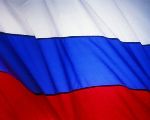1 Sep 2008 | Digital Freedom, News
Magomed Yevloyev, owner of opposition Ingushetiya.ru webpage, was killed in Ingushetia yesterday soon after the police detained him in Margas airport. Yevloyev had flown in from Moscow on the same plane with the president of the region. On disembarking from the plane Yevloyev was forced into a police car and taken in an unknown destination. Relatives found him on a highway with a bullet wound in his head. He was taken to a hospital where he died. Authorities say a policeman shot Yevloyev accidentally when the website owner attempted to seize his gun. But the opposition in Ingushetia insists the killing was deliberate.
Read more here
13 Aug 2008 | News
Dutch news cameraman Stan Storimans was killed by Russian bombing in the city of Gori, central Georgia on 12 August. Another Georgian journalist, and his driver, were killed by Russian shells in Gori’s main square in the same offensive, bringing the total number of journalists killed in the six-day conflict to four. Georgian journalists Grigol Chikhladze and Alexander Klimchuk were shot dead on Sunday by pro-independence fighters in Tskhinvali, capital of the breakaway republic of South Ossetia. The Committee to Protect Journalists reports at least 9 journalists have been wounded since hostilities commenced.
Read more here, here and here.
19 Jun 2008 | News
Russian investigators have charged four people in connection with the murder of Novaya Gazeta reporter Anna Politkovskaya.
Politkovskaya’s Novaya Gazeta colleagues say they remain sceptical that the investigation will discover who ordered the killing.
Read more here
2 May 2008 | Comment
 The Russian authorities are taking a heavy-handed approach to web monitoring, writes Maria Eismont
The Russian authorities are taking a heavy-handed approach to web monitoring, writes Maria Eismont
‘Error. The website you’ve requested either doesn’t exist, or is overloaded.’ This announcement greeted visitors to the electronic version of Russian independent regional weekly Vyatskiy Nablyudatel, a Kirov newspaper well known for its editorial independence and investigative enterprise, after its website was closed by its Internet provider on April 22. Khostingoviye telesistemi, the Moscow-based ISP, claimed it received an official letter from the Kirov regional police department saying the website contained ‘extremist’ opinion in the readers’ forum, insulting the vice-governor and the government of the region. ‘If you are the owner of this site and think this is a mistake please contact the technical support service,’ continued the announcement on the website.
The law on ‘counteracting extremist activity’ has broadened the definition of extremism to include media criticism of public officials, and carries a custodial sentence of up to three years for journalists, along with the suspension or closure of their publication. It was passed by parliament despite protests from human rights groups, who claimed that the vague language of the law would allow public officials to interpret it widely and use it to target their critics. The Russian prosecutor’s office is currently calling for the Internet to be placed under the same rules as print media.
(more…)

